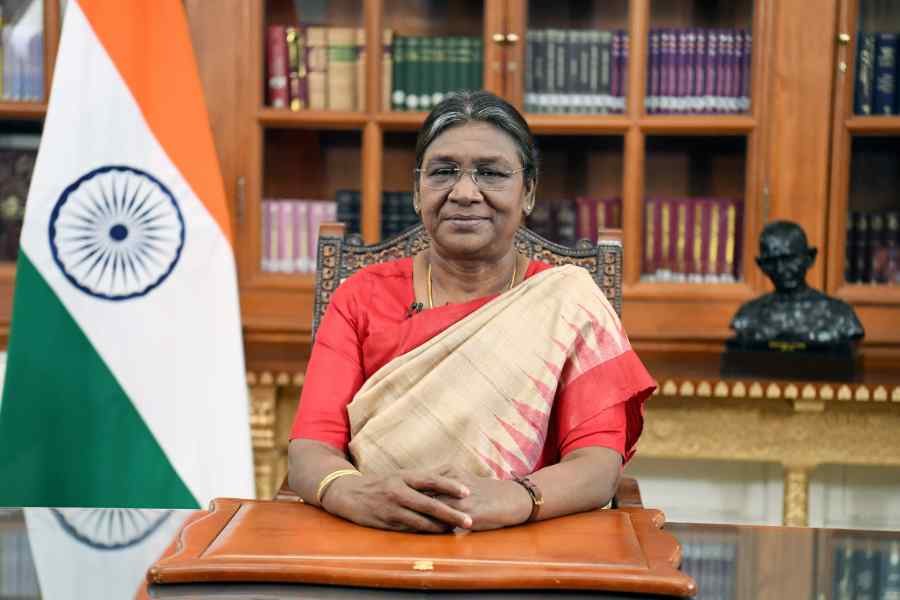A day after the government introduced a bill to provide 33 per cent reservation to women in the Lok Sabha and state assemblies, President Droupadi Murmu on Wednesday said it will be the most "transformative revolution in our times" for gender justice.
Murmu was addressing a gathering after inaugurating the biennial conference of the national human rights institutions (NHRIs) of Asia Pacific held at the Vigyan Bhawan here.
The women's reservation bill was the first bill to be introduced in the new Parliament building on Tuesday.
"We have ensured a minimum of 33 per cent reservation for women in local bodies' election... In a more pleasant coincidence, a proposal to provide a similar reservation for women in state assemblies and national Parliament is taking shape now. It will be the most transformative revolution in our times for gender justice," the President said.
The event is being organised by the National Human Rights Commission (NHRC) in collaboration with the Asia Pacific Forum (APF) from September 20-21.
Amina Bouayach, secretary of Global Alliance of National Human Rights Institutions (GANHRI), and Doo-Hwan Song, chairperson, APF, and NHRC chairperson justice (retd) Arun Kumar Mishra were also present on the occasion.
The APF will also hold its 28th Annual General Meeting (AGM) on Wednesday to discuss the issues of common interest to member countries. In the conference, more than 1,300 delegates from India and abroad are likely to participate, the NHRC earlier said.
The conference is being attended by heads, members and senior officials of the NHRIs of various countries, along with representatives from the Union and state governments, state human rights commissions, special rapporteurs, monitors and various institutions involved in the protection and promotion of human rights in the country.
Except for the headline, this story has not been edited by The Telegraph Online staff and has been published from a syndicated feed.











